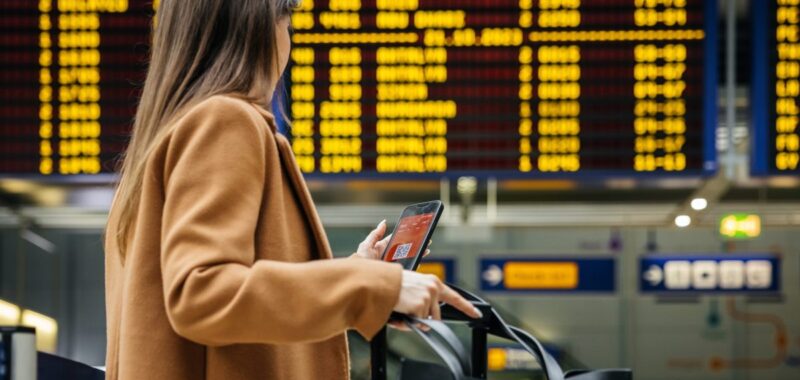
Flight shaming, or “flygskam” from its original Swedish name, is nothing new. If you are not familiar, it describes the social movement that shames people from flying due to the environmental impact.
The phenomenon started to become popular before the pandemic in 2019 when environmental activist Greta Thunberg announced she would no longer be taking to the skies. She later proved her point by making an arduous double crossing of the Atlantic Ocean on a racing yacht in 2019 to attend climate conferences in the Americas.
During the outbreak of COVID-19, flight shaming gained a different perspective. It was particularly prevalent in the U.K. during this time, as the government banned all but essential travel during the first half of 2021. This was also the start of some travelers trying to hide their flying from friends and family for fear of a backlash, a phenomenon known as “Att smygflyga” or to fly in secret.
Since the pandemic, flight shaming has intensified as the focus returns to reducing climate change. Within mainland Europe, travel without flying is relatively simple due to the Schengen area, which allows border-free travel within the European Union.
Train services are often fast, cheap, and reliable, which has led several European governments to try to ban short-haul domestic flights. For example, in June 2023, France formally introduced a ban on domestic short-haul flights under 2.5 hours, where there is an alternative by rail. The popularity of train travel has led to a word to describe posting your train travels on social media: “Tågskryt, “ a Swedish word that literally means “train brag”.
Those hit hardest by flight shaming are often aviation and travel enthusiasts who view these activities as a hobby and will fly unusual routes to maintain their frequent flyer status and earn airline miles. These routes can often involve flying long distances out of the way or making multiple stops to maximize their points earnings for status. Criticism from others may lead these travelers to hide their flying, although many adopt the view that the plane will fly whether they are aboard it or not, so they do not feel inclined to change their behavior.
Sustainable aviation?
However, the consequences of travelers being forced to abandon flights for other forms of transport may not be fully understood. For transatlantic flights, there are no easy alternatives for most people, and this is unlikely to change anytime soon. While there are ready alternatives for many forms of transport, the technology for flying to become carbon neutral is not yet readily available.
While sustainable airline fuel is being produced from plants, and recently, in November 2023, Virgin Atlantic made the first-ever transatlantic flight using 100% SAF (sustainable aviation fuel), there is nowhere near enough production capability for this to be a viable alternative to jet fuel anytime soon. SAF is also often misunderstood as it does not eliminate aircraft CO2 emissions as chemically, it is nearly identical to standard fuel. It does, however, balance the carbon emissions produced during flight with carbon absorbed during fuel production.
The biggest impact of flight shaming and any subsequent change in behavior is likely to be economic. Aviation supports 12 million jobs in the EU, according to trade body Aviation for Europe, which is about 1% of total jobs, both direct and indirect, while also making up over 4% of EU GDP. It is also a crucial entry into Europe’s tourism industry, which accounts for 10% of the continent’s GDP. Despite the setbacks to aviation and travel during the pandemic, the European Airline Industry Market Size was valued at USD 65.1 Billion in 2022 according to Market Research Future. The European Airline Industry market industry is also projected to grow to $86.43 billion by 2032.
How much influence the flight shaming movement will have on passenger numbers in the long run remains to be seen. Aviation only contributes around 2.5% of global CO₂ emissions but receives far more attention than other forms of transport, perhaps as it is seen as a luxury for many. Given the high demand and pricing for flights since the pandemic is only now slightly waning, the initial enthusiasm from the likes of Greta Thunberg has yet to dull the global appetite for taking to the skies.

